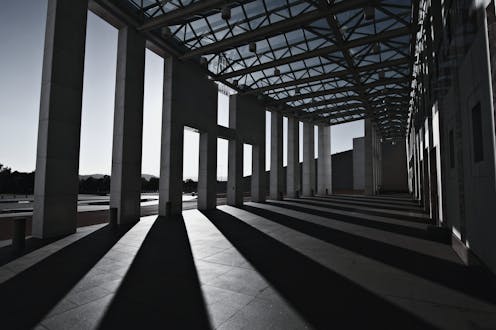With all these defamation lawsuits, what ever happened to free speech?
- Written by The Conversation

It seems like the dust barely settles from the latest high-profile defamation stoush before the next set of litigants straps on the gloves and steps into the ring.
Many of these cases raise eyebrows — and questions. Was that story about him? Does anyone remember that tweet? Wasn’t it just harmless banter? Didn’t she respond to that allegation? What if it’s all true? Isn’t that free speech? How much did you say this will cost?!
Defamation law continues to loom large over public conversations, despite recent law reforms aimed at remedying Australia’s unwanted reputation as the “defamation capital of the world”.
At the heart of defamation law lies a tension between protecting reputation and maintaining freedom of speech. The more robustly defamation law protects reputation, the more it constrains speech.
Free speech is valued in Australian law, politics and society, notwithstanding our lack of an explicit constitutional speech right. So why does our defamation law facilitate seven-figure lawsuits over communicative slights that, at times, seem disproportionately minor?
What shapes these laws?
Defamation law is old — very old — with roots in English law half a millennium ago. For several hundred years it existed in parallel with publishing monopolies, political and moral censorship, and fears that loose talk could stoke public disorder.
In other words, our defamation law substantially predates modern conceptions of civil and political rights. Some of its features, like strict rather than fault-based liability (the plaintiff need not prove anything about the defendant’s intentions or degree of care), retain the flavour of less liberal times.
Still, defamation has developed over the years and adapted with transplantation to other legal systems.
The defamation laws of different places are influenced by factors such as community values, prevailing views on the value of speech, the nature and democratic credentials of the political system, and the role of law and the constitution in regulating citizens and the state.
For example, the United States is culturally and historically predisposed to liberty and suspicion of government. The freedom to discuss and debate public affairs is seen as essential to its democratic system. The First Amendment to the US Constitution is the world’s most famous free speech law.
Accordingly, US courts have limited defamation on matters of public concern to deliberate or reckless lies, while opinions on any newsworthy topic are immune from suit. This is because US democracy requires the “marketplace of ideas” to be minimally constrained and largely self-regulating.
On the other hand, less democratic states have kept their defamation laws strict, to suppress political dissent and silence critical media.
A case in point is Singapore, which, under founding father Lee Kwan Yew and his perpetually-in-power People’s Action Party, has weaponised defamation law against political opposition and the press.
Read more: With more lawsuits potentially looming, should politicians be allowed to sue for defamation?
That is not to say that less defamation law is automatically better than more. The interest in maintaining a (deserved) good reputation is legitimate. And speech anarchism can allow low-value and harmful speech to flourish.
The High Court of Australia has shied away from US-style speech liberalism for fear it could facilitate speech that is harmful to the integrity of political discourse: a prescient position given recent US history. The English courts have done similarly, influenced by distrust of the tabloid press.
But when reputation and speech fall out of balance, defamation law risks infringing both democratic values and fundamental rights.
Legal balancing acts
Around the turn of the millennium, English defamation law reached a crossroads. Its relative stasis had turned the United Kingdom into a “libel tourism” hotspot, and the UK was falling behind on the speech protections mandated by the European Convention on Human Rights.
So the UK courts moved to better protect publishers by creating a new defence for responsible publication in the public interest. That was followed in 2013 by a new Defamation Act to further simplify, clarify and rebalance defamation law.
Australia, lacking the same constitutional or convention impetus, has been slow to follow suit. The states agreed to harmonise their disparate defamation laws only in 2005, and it was 2021 before they found the appetite to improve them.
By then, Australia had taken over the UK’s mantle as the preferred destination for defamation plaintiffs.
Australia’s 2021 reforms included a new defence for publication of public-interest material, which generated some excitement but hasn’t substantially liberated the media from defamation threats. It amounts to tinkering around the edges of law, which remains conservative at its core.
Today, from a practical standpoint, the biggest problem with defamation may be its cost.
Legal advice and correspondence are expensive, settlements more so, and the cost of litigation can be eye-watering. It’s one problem if you can’t afford to assert your legal rights; it’s quite another to be slapped with an unexpected complaint. Defamation disputes can easily bankrupt individuals and exhaust media budgets.
Legal consequences can act as an incentive for better journalism, but they also chill public-interest reporting. Even a journalist assured of their facts will find proving them in court to be a different matter. And a win does not guarantee full recovery of costs, let alone time and stress.
The debate over defamation law reform is ongoing. The central question remains how best to balance the interest in reputation with the benefits of free speech. The answers depend on what we really value, and what our commitment to liberal democracy really requires.







